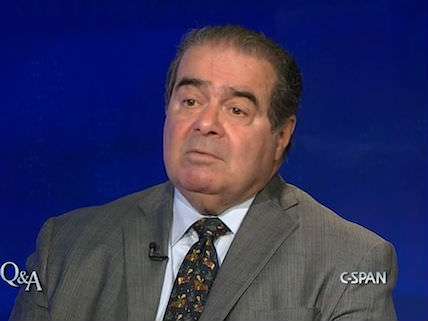Scalia, Thomas, and Ginsburg File Rare Dissent from SCOTUS Refusal to Hear Crack-Cocaine Sentencing Case

The U.S. Supreme Court turns down the vast majority of petitions it receives without offering any sort of explanation. But in a rare move today, Justices Antonin Scalia, Clarence Thomas, and Ruth Bader Ginsburg spoke out against the Court's refusal to hear a crack-cocaine sentencing case.
Jones v. United States centers on the criminal sentences handed down by a judge to three men for conspiring to distribute drugs. However, those men had been acquitted of the conspiracy charge by the jury, which voted only to convict them of distributing a small amount of drugs. The question before the Supreme Court was whether the harsher, judge-imposed sentence violated the Constitution.
In his dissent today from the Court's denial of the case, Justice Scalia, joined by Justices Thomas and Ginsburg, explains both the stakes and why the Court's refusal to hear the appeal got it wrong:
The Sixth Amendment, together with the Fifth Amendment's Due Process Clause, "requires that each element of a crime" be either admitted by the defendant, or "proved to the jury beyond a reasonable doubt." Any fact that increases the penalty to which a defendant is exposed constitutes an element of a crime, and "must be found by a jury, not a judge." We have held that a substantively unreasonable penalty is illegal and must be set aside. It unavoidably follows that any fact necessary to prevent a sentence from being substantively unreasonable—thereby exposing the defendant to the longer sentence—is an element that must be either admitted by the defendant or found by the jury. It may not be found by a judge. [Internal citations omitted.]


Show Comments (62)